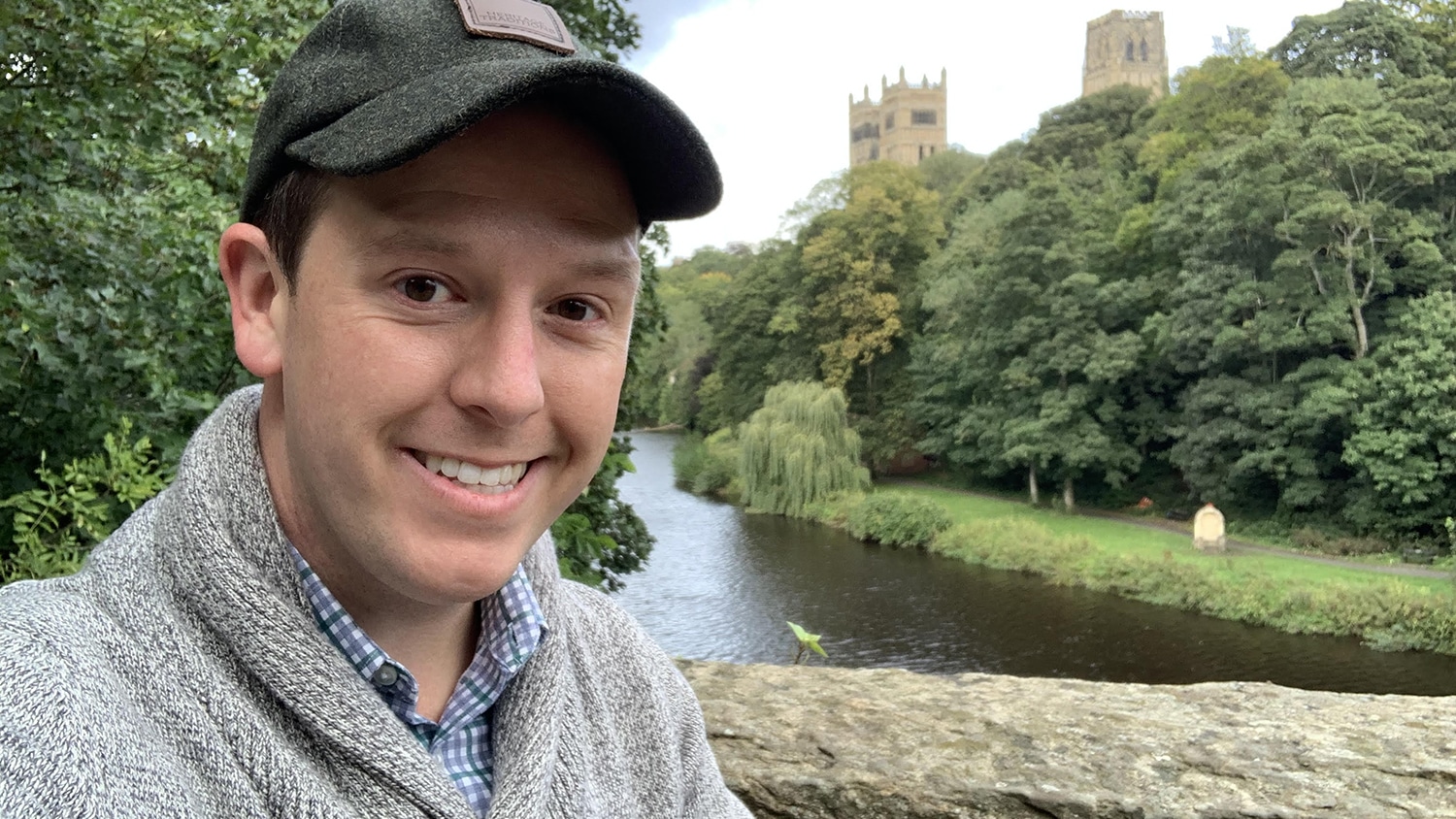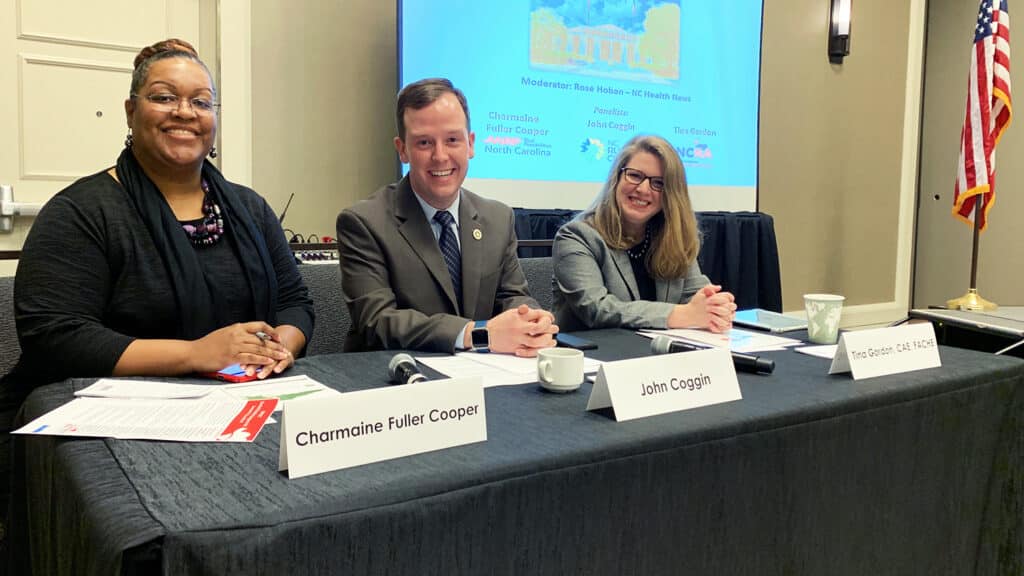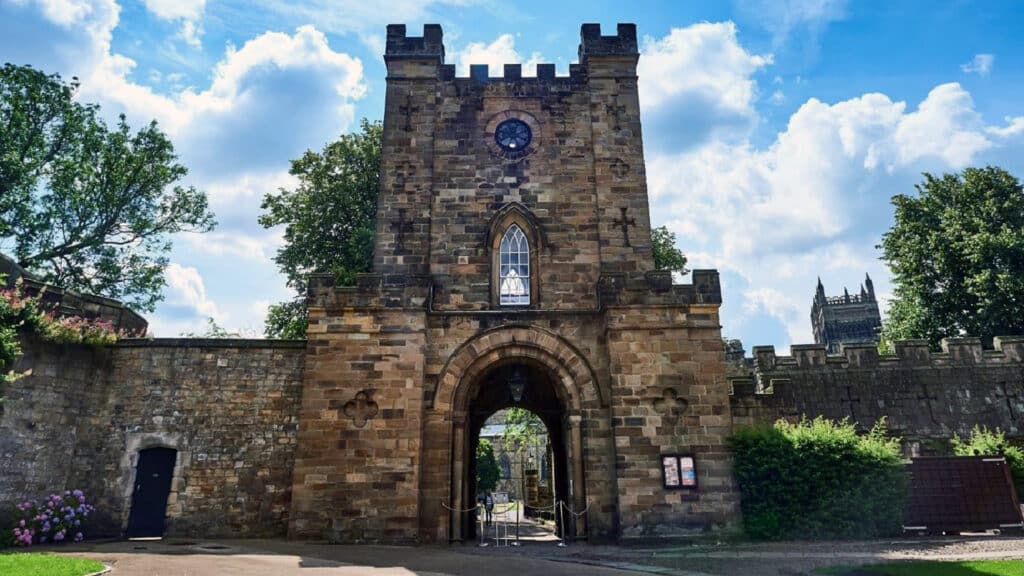Bridging the Divide
John Coggin's passion for solving real-world problems while reconciling differing worldviews took him from NC State to Harvard and back again. Could his doctoral studies in England help us heal divisions in the United States?

If you trace the history of the political polarization that has divided America’s governing institutions into armed camps — at times literally — 2009 stands out as an inflection point. That’s the year Barack Obama took the oath of office as the 44th president of the United States, and the year conservatives launched the far-right Tea Party movement, a loose collection of political groups fiercely opposed to progressive initiatives such as the Affordable Care Act.
It’s the year I met John Coggin, a Park Scholar whose optimism seemed out of sync with the times.
“There is a lot of hurting and violence and suffering out there,” he told me at the time. “I’d like to work with the world and use its capacity for change in a positive way.”
Coggin’s determination to bridge society’s divides was reflected in his academic work. He designed his own undergraduate degree program combining studies in both science and religion. In a feature titled “Thank God for Darwin,” I profiled his work with young people at several local Baptist churches, where he led discussions on God and evolution.
“I see in my generation, across the spectrum of religious belief, a great desire to serve,” he said. “I think we’re getting to the point where we’re willing to put aside our differences and work together.”
In the years since we first talked, Coggin has put his beliefs into action.
At Harvard, where he earned a master’s degree in religion, ethics and politics, Coggin had the opportunity to take a research seminar on social capital at the Kennedy School of Government. It was a life-changing experience, leading Coggin to publish some of the earliest research about the emerging Tea Party movement. The seminar also served as his introduction to a concept that would guide his life and studies in the years ahead.
“‘Social capital’ is the idea that our social networks and the relationships we cultivate have power for social and political change just as much as financial capital or human capital or infrastructure do,” he says.
“I had wanted to work on conflict resolution at the international stage, bringing together everything I had been studying about religion and politics. But my work on social capital helped me recognize that I needed to go where my social capital was and where my people were and where I could be authentic and do good, vital work. And that was back home.”
In the Field
So after graduating, Coggin returned home from Boston to work in public policy and civic engagement, first at the Institute for Emerging Issues at NC State and then at the North Carolina Rural Economic Development Center.

As the Rural Center’s first director of advocacy, Coggin traveled the state, engaging with residents in all of North Carolina’s 80 rural counties.
“We had developed a very broad platform, covering everything from education, broadband and health care to physical infrastructure, manufacturing, agriculture and regional planning,” he says. “It was my job to gather people together and narrow down that platform to a few specific policies that we could lobby for at the state and federal levels.”
Coggin saw how political polarization made it increasingly difficult to build consensus and to turn common concerns into common-sense legislation with bipartisan support.
“Across the state, you hear the same things from people no matter what side of the spectrum they’re on,” he says. “And yet we’re not able to bring people together to make a difference because we have these competing narratives, these competing worldviews that prevent us from actually doing the work that we would otherwise all be agreed upon.”
Values That Unite Us
True to form, Coggin is convinced he can find a way to span the divide.
He’s now living in England, where he’s working as a consultant while pursuing a Ph.D. in theology and religious studies at Durham University. His ambitious thesis will explore the role of big ideas and transformational leaders in uniting and improving communities.

“I have a sense that what is keeping us from coming together to solve our problems is that we are struggling to connect to some sort of grander narrative that unites us,” he says. “If we can train a new generation of leaders to frame the challenges we face in ways that unite us around our shared values, that’s where the magic is going to happen.”
When we talked in 2009, Coggin was feeling the weight of high expectations. The 21-year-old had just accepted the President William Jefferson Clinton Hunger Leadership Award from the former president for his work with NC State’s Presbyterian Campus Ministry and Stop Hunger Now. Harvard seemed a world away from his small-town childhood in Sanford, North Carolina.
“I don’t know if I can deliver the kind of results people expect,” he told me at the time. “But I hope to bring a little more peace, a little more prosperity and less suffering to the world.”
Today, Coggin’s aspirations remain tempered, but hopeful.
“I don’t know if there’s anything that I’m doing today that would get me featured on the NC State website if it weren’t for this retrospective,” he says. “But I would say that today, 14 years since that 2009 article, I’m more content with myself and the work I’m doing than I’ve ever been before.
“I hope that trajectory continues and that I can do just a little something to help heal some of our divisions by the time I’m done with my work.”
- Categories:


